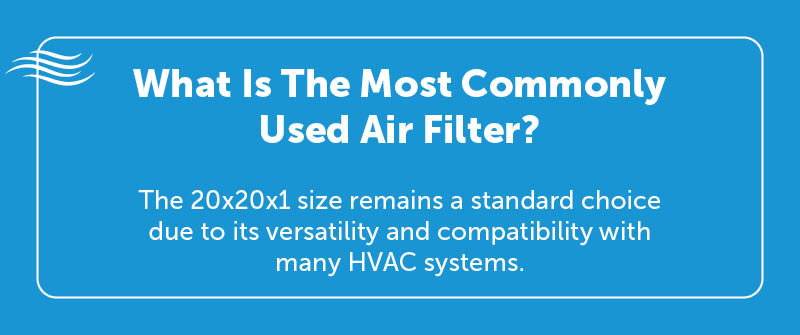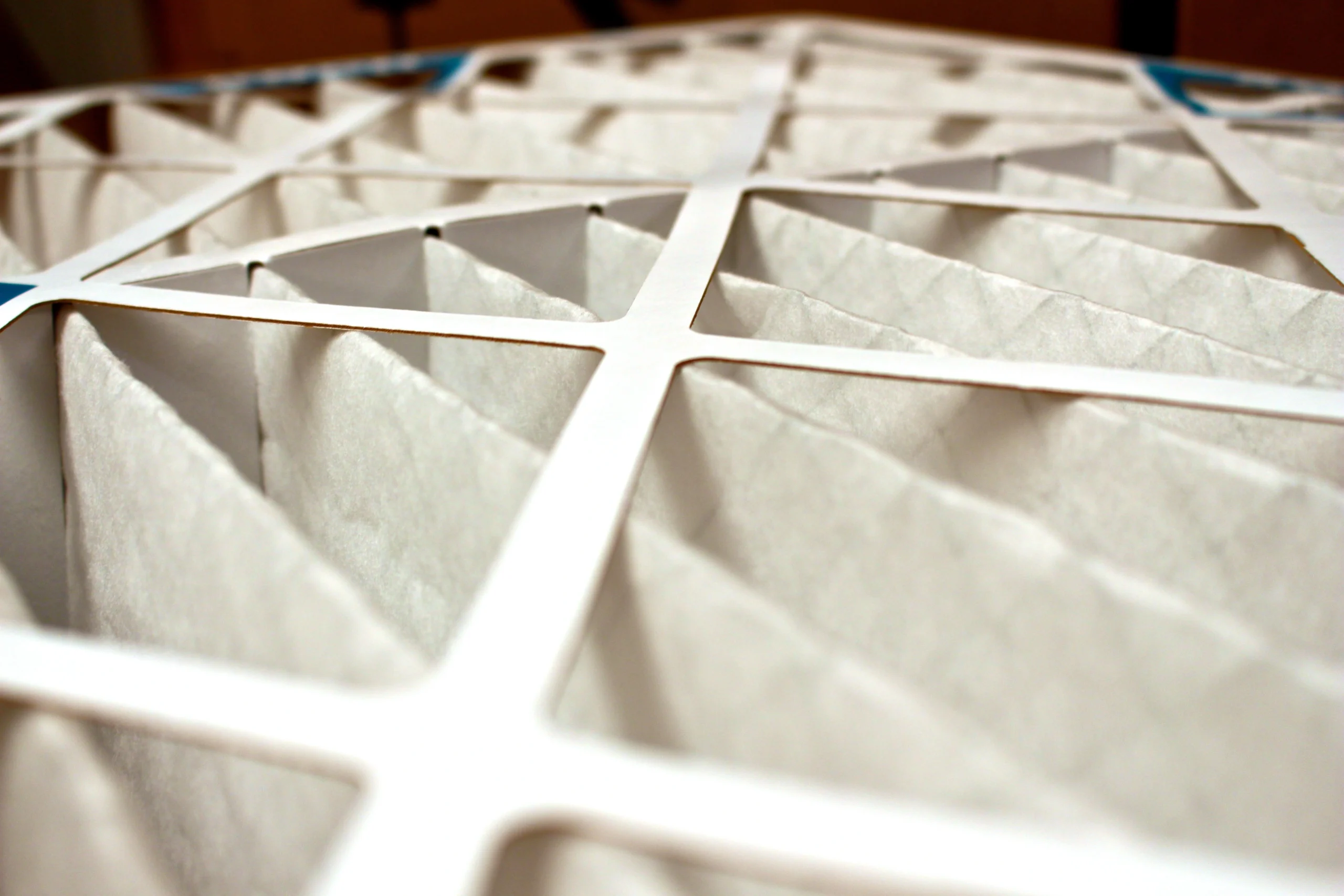Air filters are a staple in many buildings, whether residential or not, when it comes to maintaining an HVAC system and protecting air quality. However, many people do not know that air filters come in different sizes, all with different efficiency and capabilities of capturing air pollutants effectively.
Although there is a wide range of furnance air filter sizes on the market today, the most popular option is the 20x20x1 air filter. But why is it so popular, and is it the right air filter for you?
Why Is 20x20x1 The Most Popular Air Filter Size?
There are many reasons why the 20x20x1 air filter size remains a top choice and is popular in residential and business buildings. These include:
- Compatibility: 20x20x1 air filters are known for being compatible with many standard furnaces and air conditioning units. This makes them a convenient choice for fitting various HVAC systems. Having a correct size filter can help keep extend the life of your HVAC system as well as your home air filters themselves.
- Efficiency: 20x20x1 air filters come in varying levels of MERV ratings, including MERV 8 and MERV 13. As such, they offer varying levels of efficiency for blocking air particles like pollen, dust, mold, dust mites, bacteria, and pet dander. Which MERV filter is right for you will depend on a few factors, such as if you are suffering from allergens.
- Quality and Effectiveness: 20x20x1 pleated air filters are at least 20 times more efficient than fiberglass filters as they are designed to capture a high number of airborne particles as small as 0.3 microns while maintaining low airflow resistance
Hence, the popularity of 20x20x1 air filters stems from their compatibility, filtration efficiency, quality construction, durability, and cost-effectiveness, making them a preferred choice for maintaining indoor air quality in residential and commercial settings.

What Is The Best 20x20x1 Air Filter?
The best 20x20x1 air filter depends on several factors, including the filtration efficiency needed, allergies or pets, and personal preferences for filter quality and brand.
When choosing an air filter, some factors to consider include:
- Filtration Efficiency: The best air filters capture a high percentage of airborne particles like dust, pollen, mold, and bacteria
- MERV Rating: The Minimum Efficiency Reporting Value (MERV) indicates the filter’s ability to capture particles of different sizes. Higher MERV ratings typically signify better filtration performance.
- Specific Needs: Some air filters are tailored to specific needs, such as allergy relief, asthma, or indoor air quality improvement.
- Certifications and Testing: The best air filters are those that have undergone rigorous testing and certification processes to ensure their efficiency and performance meet industry standards.
While there are many 20x20x1 from different brands in the market today, some of the top choices include:
1. Filtrete 20x20x1 Air Filter, MPR 2800, MERV 14
This filter offers high filtration efficiency, capturing 99.97% of particles as small as 0.3 microns, including dust, pollen, smoke, and bacteria
2. Filter King 20x20x1 Air Filter, MERV 8
Filter King offers a range of MERV ratings, including MERV 8, which is a good starting point for improving general air quality.
3. Simply Filters 20x20x1 MERV 8, MPR 600 Air Filter (6 Pack)
This filter is cost-effective with a MERV 8 rating, suitable for general air quality improvement.
With the many choices of 20x20x1 air filters in the market today, some factors to consider when choosing an option include:
- Filtration efficiency
- Airflow
- Dust-holding capacity
- Filter media
- Allergen and particle capture.
What Is The Most Commonly Used Air Filter?
While the 20x20x1 air filter size is popular, various types of air filters are commonly used based on specific AC and furnace filter needs and preferences.
Some commonly used air filters include:
- Carbon filters: Carbon air filters are most commonly used to remove gasses such as volatile organic compounds (VOCs) released from common household products. They are also used to remove odors.
- Electrostatic filters: These filters use electrically charged metal plates to improve indoor air quality by changing the air around them with electricity. They can be washed and reused, making them a sustainable option.
- HEPA filters: High-efficiency particulate air (HEPA) filters have MERV ratings between 17 and 19. They can remove 99.97% of all particles with diameters of 0.3 microns or more from the air.
- UV filters: These filters kill any latent bacteria in the air, making them ideal for disinfecting homes.
Despite the variety of air filter types available, the 20x20x1 size remains a standard choice due to its versatility and compatibility with many HVAC systems.

Do Expensive Air Filters Make A Difference for Indoor Air Quality?
A quick look at the air filter market will show filters of various sizes, features, and, most importantly, prices. Some of these filters cost more than others, leaving anyone wondering if their higher price tags make them a more superior option.
So, do expensive air filters make a difference for clean air?
Expensive air filters are typically advertised to include enhanced features and higher filtration efficiency than their more affordable counterparts. While cost is a factor to consider, premium air filters can make a significant difference in air quality control by:
- Improved Filtration: Expensive filters can capture smaller particles, allergens, and pollutants, leading to cleaner indoor air.
- Longevity: Premium filters are often designed to last longer, reducing the frequency of replacements and maintenance costs in the long run.
- Health Benefits: Some expensive air filters offer better filtration, improving respiratory health and overall well-being for occupants.
When choosing expensive air filters, homeowners should weigh the upfront cost against long-term benefits and consider their specific air quality needs to decide whether investing in expensive filters is worthwhile.
Some factors to consider to make effective purchase decisions when it comes to choosing expensive 20x20x1 air filters include:
- Initial cost
- Replacement frequency
- Energy efficiency
- Health benefits
- Durability, longevity, and performance.
By evaluating these economic factors, homeowners can make informed decisions when choosing air filters that meet their filtration needs and align with their budget and long-term cost considerations. To learn more or find the best filter for your needs and budget, check out our selection today!

